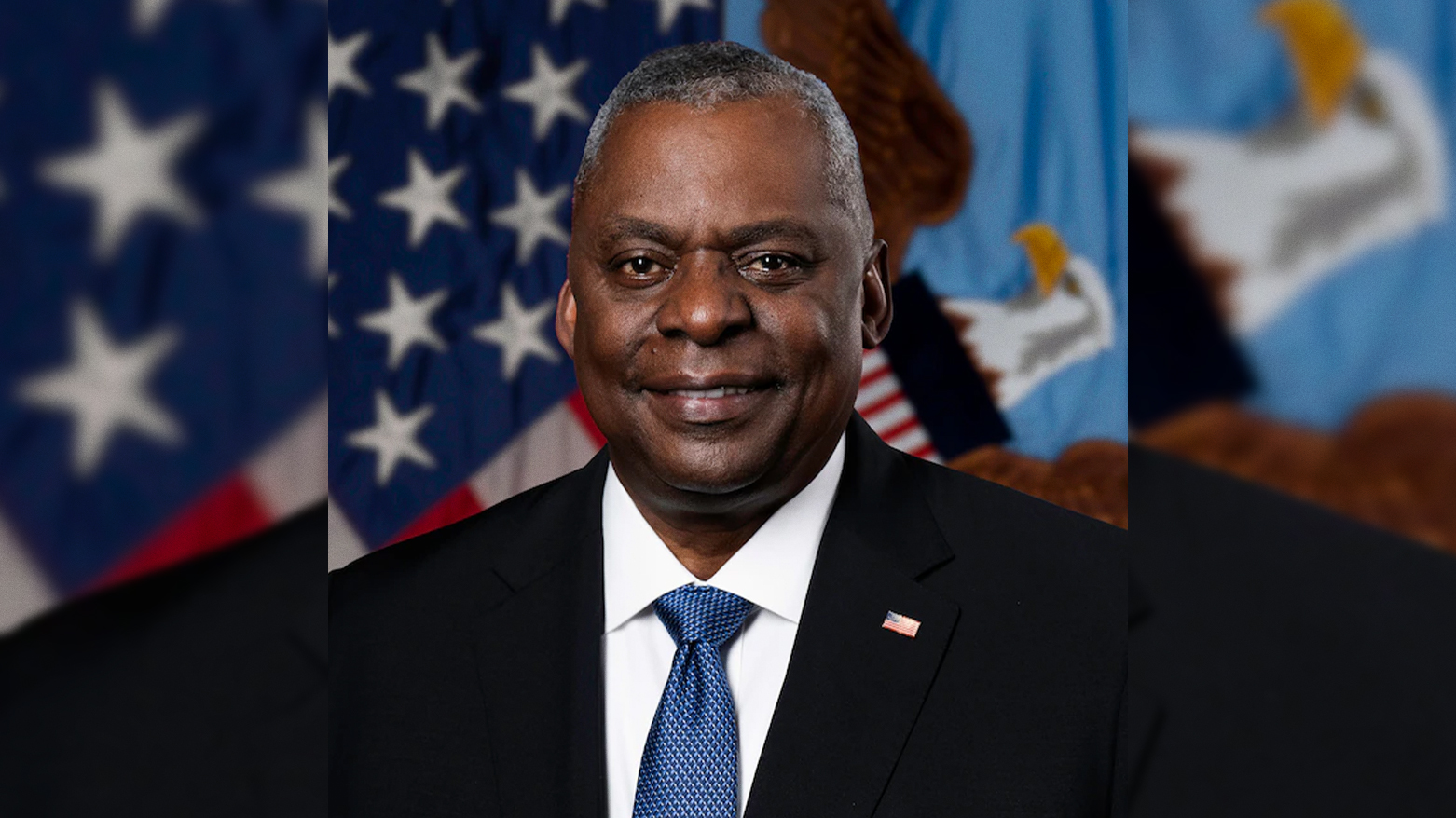US Warns it will Protect its Forces against Attack from Iran, Proxies
“Our forces remain postured to protect U.S. troops and partners in the Middle East," Austin affirmed.

WASHINGTON DC, United States (Kurdistan 24) In two separate statements, U.S. defense officials warned they were prepared to use force to protect U.S. troops in the Middle East against attack by Iran and its proxy forces.
That point was affirmed by Secretary of Defense Lloyd Austin in a statement issued late on Tuesday, following a large-scale Iranian ballistic missile attack on Israel, in which nearly 200 missiles were fired on the Jewish state.
The Iranian attack was the second this year on Israel. It involved twice the number of missiles fired in April.
In both cases, however, the results were the same: minimal damage.
The U.S. and U.K., and perhaps other countries as well, aided Israel in its defense against Iran’s missile attack. In addition, Jordan allowed the use of its airspace for the U.S. to fly and shoot down the Iranian missiles.
Of course, Iran did not ask permission to use Jordanian air space, and as a Jordanian official told NBC News, Jordan would do the same with regard to "any other missile flying over our airspace."
Despite the large number of missiles fired, there was only two casualties, and there were not Israeli! They were Arab. One was a Jordanian, and the other was a Palestinian from Gaza, who died in the West Bank, in Jericho, just 23 kilometers from the Jordanian border.
Both men were struck by shrapnel falling from the destroyed missiles.
U.S. Commitment to Defend its Forces against Attack by Iran, Iranian Proxies
“Today, U.S. forces in the Middle East intercepted multiple missiles launched by Iran toward Israel,” Secretary of Defense Austin said in a written statement. “We condemn this outrageous act of aggression by Iran, and we call on Iran to halt any further attacks, including from its proxy terrorist groups.”
“We will never hesitate to protect our forces and interests in the Middle East, and to support the defense of Israel and our partners in the region,” he affirmed. “Our forces remain postured to protect U.S. troops and partners in the Middle East.”
Earlier on Tuesday, Pentagon Press Secretary Maj. Gen. Patrick Ryder made similar statements, as he briefed reporters.
“Should U.S. forces be targeted by Iran or its proxies, we’ll take necessary steps to defend our people,” Ryder affirmed.
On Monday night, “there was an attack on the Baghdad Diplomatic Support Compound, a US diplomatic facility,” the U.S. Ambassador to Iraq, Alina Romanowski tweeted on Tuesday.
Last night there was an attack on the Baghdad Diplomatic Support Compound, a US diplomatic facility. Thankfully, no casualties. I appreciate the Government of Iraq’s quick response to the attack, and I continue to ask them to protect diplomatic missions and Coalition partner…
— Ambassador Alina L. Romanowski (@USAmbIraq) October 1, 2024
There were no casualties, and Romanowski expressed her appreciation for “Iraq’s quick response to the attack,” even as she affirmed, “These attacks must stop.”
Chance to Establish a Lebanese Government
Since October 2022, when the term of Lebanon’s President Michel Aoun ended, Hizbollah has blocked the formation of a new Lebanese government through undemocratic maneuvers, like blocking a quorum and preventing a vote.
But now Hizbollah is weak. Hoshyar Zebari, a senior figure in the Kurdistan Democratic Party (KDP) and Iraq’s first post-Saddam Foreign Minister, before becoming Deputy Prime Minister of Iraq and then Finance Minister, suggested in a tweet on Monday that the Lebanese should take advantage of this situation to form a government.
تركيبة لبنان و العراق الطائفية و القومية و السياسية متقاربة. ولمواجهة التحديات الامنية القائمة لا بد من ملئ شغور موقع رئيس الجمهورية في لبنان لمكونه الاصيل، و لابد من ملئ شغور منصب رئيس البرلمان العراقي لمكونه الاصيل، بالاتفاق و الانتخاب اساسا لحماية الدولة الوطنية و الدستورية.
— Hoshyar Zebari (@HoshyarZebari) September 30, 2024
In a briefing the next day, State Department Spokesperson Matthew Miller advised much the same. Of course, the State Department is capable of reaching that conclusion on its own, but the convergence speaks to the coherent, strategic thinking of the Kurdish leadership.
Asked by journalists on Tuesday about U.S. policy toward Lebanon, Miller replied, “Lebanon has been plagued by instabilities, as I know you know far better than me, for some time.”
“One of the driving factors of Lebanon’s instability,” he continued, “has been the fact that Hizbollah plays a significant role in the political organization of Lebanon and has held a veto over Lebanon’s ability to move forward with a new president.”
Thus, we will try, Miller concluded, “to seize this moment and really hope that the Lebanese people can seize this moment”—against difficult odds—“because there are still a number of Hizbollah fighters” with “access to arms and equipment inside Lebanon – but seize this moment to try to establish actual political stability for Lebanon.”